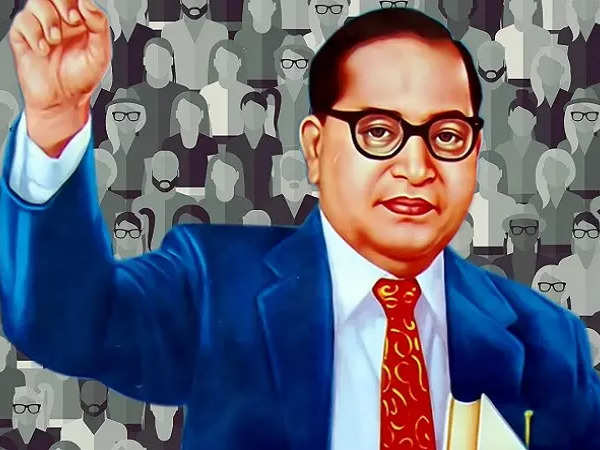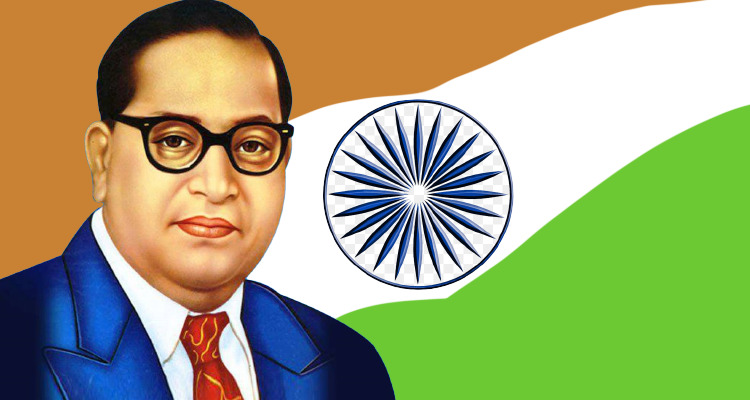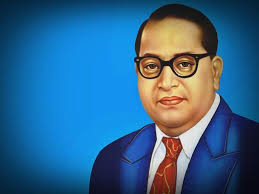Dr. Bhimrao Ambedkar, popularly known as Babasaheb Ambedkar, was a prominent Indian jurist, economist, politician, and social reformer who dedicated his life to fighting against social discrimination and advocating for the rights of marginalized communities in India. Born on April 14, 1891, in the town of Mhow in the Central Provinces (now in Madhya Pradesh), Dr. Ambedkar overcame numerous challenges and obstacles to become one of the most influential figures in India’s struggle for social justice and equality.
Early Life and Education
Dr. Bhimrao Ambedkar, was born into the Mahar caste, considered untouchable in the rigid caste system of Hindu society. Despite facing severe discrimination and oppression from a young age, he was determined to pursue education and uplift his community. With the support of his family and a few progressive individuals, he managed to overcome societal barriers and excel academically.
After completing his early education at local schools, Dr. Bhimrao Ambedkar, went on to pursue higher studies at prestigious institutions in India and abroad. He earned multiple degrees, including a Bachelor’s degree from the University of Bombay, a Master’s degree from Columbia University in the United States, and a Doctorate from the London School of Economics in the United Kingdom.

You can read our another post on Devi Subhadra: The Goddess of Love, Compassion, and Devotion
Social Reform and Activism
Throughout his life, Dr. Ambedkar tirelessly fought against social injustices such as caste discrimination, untouchability, and social inequalities prevalent in Indian society. He was a vocal advocate for the rights of Dalits (formerly known as Untouchables) and other marginalized communities, campaigning for their social, economic, and political empowerment.
Dr. Ambedkar played a significant role in the drafting of the Indian Constitution and is widely regarded as the chief architect of India’s Constitution. As the chairman of the Drafting Committee, he ensured that the Constitution enshrined principles of equality, liberty, and fraternity, providing a framework for a democratic and inclusive society.
Political Career and Legacy
Dr. Ambedkar was instrumental in shaping India’s political landscape and played a pivotal role in the country’s independence movement. He was appointed as India’s first Law Minister in the interim government and later served as the Chairman of the Constitution Drafting Committee.
Apart from his significant contributions to the Constitution, Dr. Ambedkar also founded the Independent Labour Party in 1936 to represent the rights of workers and the oppressed. He later established the Scheduled Castes Federation to advocate for the rights of Dalits and ensure their representation in political decision-making.
Dr. Ambedkar’s legacy extends far beyond his contributions to law and politics. He was a prolific writer and scholar, penning numerous books, essays, and speeches on issues related to social reform, caste discrimination, and economic disparities. His seminal work, “Annihilation of Caste,” remains a powerful critique of the caste system and a call to action for social change.

In recognition of his immense contributions to Indian society, Dr. Ambedkar was posthumously awarded the Bharat Ratna, India’s highest civilian award, in 1990. His birth anniversary, April 14, is celebrated as Ambedkar Jayanti across India, with tributes and events honoring his life and legacy.
Personal Life and Philosophy:
Despite facing discrimination and hardship throughout his life, Dr. Ambedkar remained steadfast in his commitment to social justice and equality. He believed in the power of education, reason, and constitutional rights as tools for social reform and progress.
Dr. Ambedkar’s philosophy was deeply rooted in the principles of human dignity, individual freedom, and social equality. He emphasized the importance of self-respect, education, and empowerment as a means to uplift marginalized communities and create a more just and humane society.
In his personal life, Dr. Ambedkar was known for his integrity, intellect, and unwavering dedication to the cause of social justice. His visionary leadership and tireless advocacy continue to inspire generations of Indians to strive for a more inclusive and equitable society.
More: Wanted to visit Odishashop.com here

As a champion of the oppressed and a crusader against injustice, Dr. Bhimrao Ramji Ambedkar’s contributions to the fields of law, politics, and social reform are immeasurable. His legacy serves as a guiding light for all those who seek to challenge systems of inequality and work towards a more just and compassionate world.
FAQ For Biography Of Dr Bhimrao Ambedkar
Who was Dr. Bhimrao Ambedkar?
Dr. Bhimrao Ambedkar, also known as Babasaheb Ambedkar, was an Indian jurist, economist, politician, and social reformer who campaigned against social discrimination towards the untouchables and also played a key role in drafting the Indian Constitution.
What were Dr. Ambedkar’s major contributions to Indian society?
Dr. Ambedkar was a prominent leader in the Indian independence movement and a champion for the rights of the oppressed classes. He was the architect of the Indian Constitution, which abolished untouchability and provided for equal rights for all citizens. He also fought for the rights of Dalits and other marginalized communities.
What motivated Dr. Ambedkar to work for social reform?
Dr. Ambedkar, being born in a Dalit family and experiencing social discrimination firsthand, was deeply motivated to fight against the caste system and work towards creating a more just and equal society for all. His personal experiences shaped his beliefs and actions throughout his life.
What political roles did Dr. Ambedkar hold in India?
Dr. Ambedkar was the first Law Minister of independent India, and he also served as the Chairman of the Drafting Committee of the Indian Constitution. He was a member of the Rajya Sabha (the upper house of the Indian Parliament) from 1952 until his death in 1956.
What is Dr. Ambedkar’s legacy in modern India?
Dr. Ambedkar is considered the chief architect of the Indian Constitution and is revered as the “Father of the Indian Constitution.” His legacy includes his tireless efforts towards social justice, equality, and empowerment of marginalized communities in India. He continues to inspire millions of people advocating for social reform and equality in the country.
